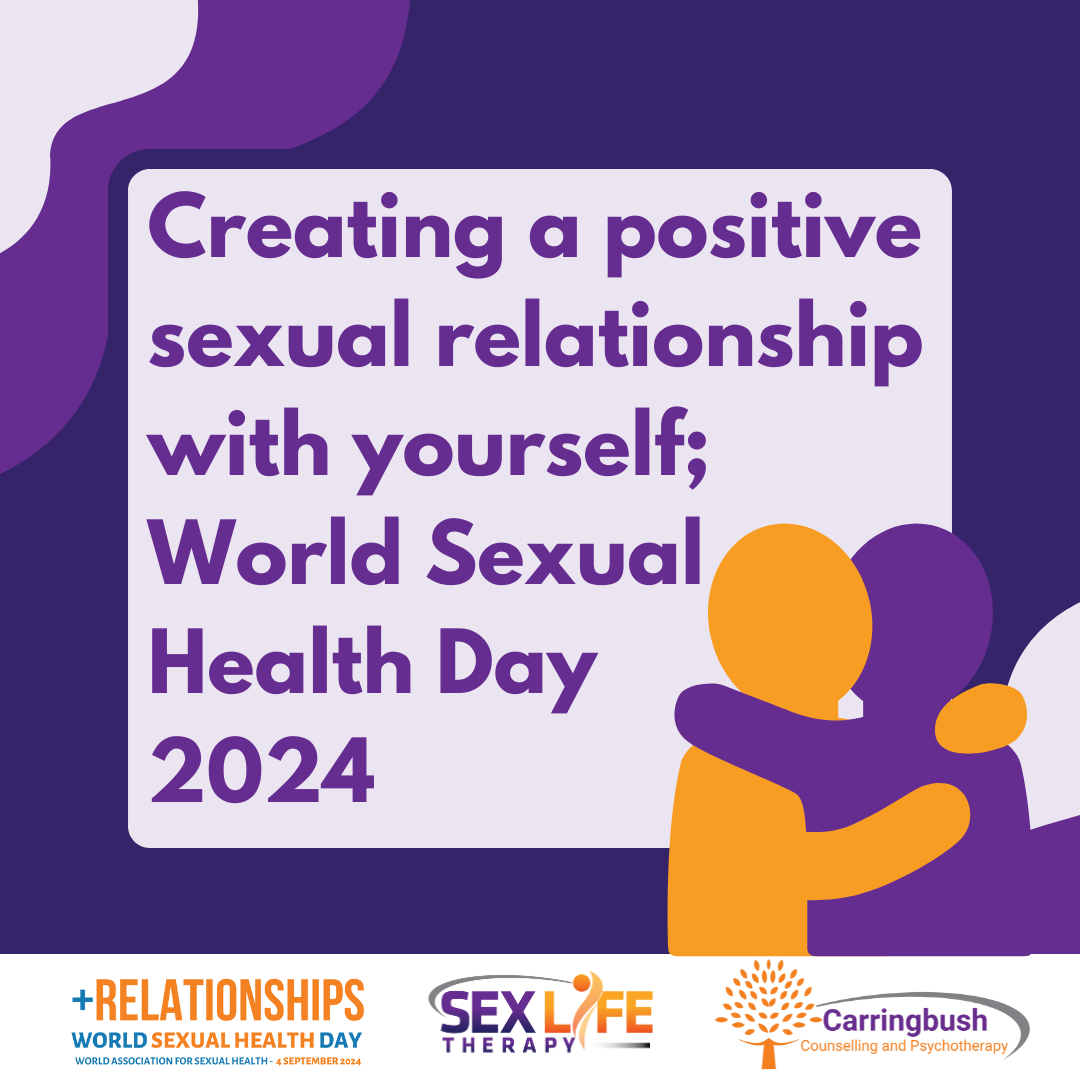World Sexual Health Day raises awareness and promotes greater sexual health for all. The theme for World Sexual Health Day 2024 is Positive Relationships. I want to take the path less travelled today and focus on the most important (and often the overlooked!) positive relationship in our lives – the one we have with ourselves.
As we move through the world, we can expect to meet many people, experience lots of different types of relationships, and hold expectations about how we would like to be treated. The relationship we have with ourselves can set the scene for the relationships we cultivate and enjoy in our lives. It determines our style of life, self-esteem, boundaries, and our openness to connection. The relationship we have with ourselves, and the value we place in it, is where self-love starts, so this World Sexual Health Day, let’s talk about it.
Positive Self Relationship
A positive relationship is marked by kindness, comfort, care, respect, trust, honesty, equaleffort, and support. These characteristics allow us to feel safe, secure, and loved in a relationship, even with ourselves. Behaviours that mark a positive relationship include open communication, active listening, self-care, and appreciation for ourself and our partner.
A positive relationship with yourself mirrors these aspects. As a rule, we know we are on the right track if; We like ourselves.
Speak kindly to ourselves, and provide (self-)care, like we would a loved one.
Hold ourselves to the same standards which we hold others to, no higher.
Celebrate our achievements and strengths, and embrace our humanity when things do not quite go the way we want them to.
Accept our identities, and lean into the different parts of ourselves with curiosity and non-judgement.
Positive Sexual Relationships
A positive sexual relationship is one that benefits our sexual wellbeing, which the World Health Organization define as “a state of physical, emotional, mental and social well-being in relation to sexuality”. (2024). A positive sexual relationship is one where partners view sex as normal and healthy, and have open attitudes towards having sex and talking about sex.
The sexual relationship you have with yourself is determined by your mindset and approach to sex. Holding positive attitudes about yourself as a sexual being signals a positive sexual relationship with yourself. It shows respect and appreciation for your sexual expression, sexual body, and sexual pleasure, and acknowledgment of sexuality as an important facet of your identity. Having a positive sexual relationship with yourself evokes feelings of comfort, contentment, and safety around sex. Alternatively, a negative sexual relationship with ourselves might be expressed through thoughts and feelings of unease, shame, guilt, or distress around sex.
The relationship we have with our sexuality changes over time and with different life events and stressors. If this is an area you would like to explore, you might consider some of the following tips to build a positive sexual relationship with yourself.
- Let’s start with an easy one – part of having a positive sexual relationship with yourself is looking after your sexual health. This means maintaining an awareness of and advocating for safer sexual practices as much as possible, and looking after your bits with regular STI testing, and learning what your ‘normal’ is so you can notice if anything changes!
- All relationships take time. If we want to build a positive sexual relationship with ourselves, we need to allocate time to it. This means making sure we have enough down-time to create space for (self) pleasure, and focus on being present when we play – solo and partnered!
- Learning what feels good. Experiencing pleasure can be a trial-and-error activity, so don’t be disheartened if you haven’t yet discovered what kind of stimulation yourbody responds best to. Learning what feels good can be a fun process, and masturbation is a normal and healthy part of sexuality.
- Knowing how to communicate our desires. When we know what feels good, we can communicate to a sexual partner how we would like to be touched. Providing instruction and maintaining open communication about our desires is an important part of sex, and increases pleasure for all parties.
- Understand consent, learning our boundaries, and respecting others’ boundaries. Part of sexual wellbeing is being clear on, and feeling positive about expressing what is ok and not ok with you. It also involves accepting your boundaries and celebrating when others communicate their boundaries to you in return.
- Practice aftercare for solo (and partnered) play. You would not go for a run and not rehydrate or stretch afterwards. Your body needs a bit of TLC in that moment, and so too does it need some TLC after sex – not just on a physical level, but an emotional level too. Incorporating aftercare into your sexual practice helps the body to recover, encourages mindfulness and presence, and validates your sexual self.
- Regularly check in with your feelings around sex. How we feel about sex is the cornerstone of a positive sexual relationship with ourselves. We might like to check-in every now and again, and ask questions such as… what emotions come to mind when I think about sex? How does my body feel when I think about sex? Regular reflection about our feelings and bodily responses to sex give us clues about the state of our relationship to sex.
- Approach your sexuality with open-mindedness and flexibility – Lastly, part of maintaining a positive sexual relationship with yourself is acknowledging that things won’t be perfect all the time, and that’s ok! Like all relationships, our relationship to sex is dynamic and ever-changing. Approaching our sexuality with open-mindedness and flexibility allows us to challenge our sexual script, address barriers to intimacy, encourage growth, and find deeper connection to our sexual self.

Written By: Lily Reed – Psychosexual Therapist @ Sex Life Therapy

Blog written for World Sexual Health Day supporting positive relationships.


